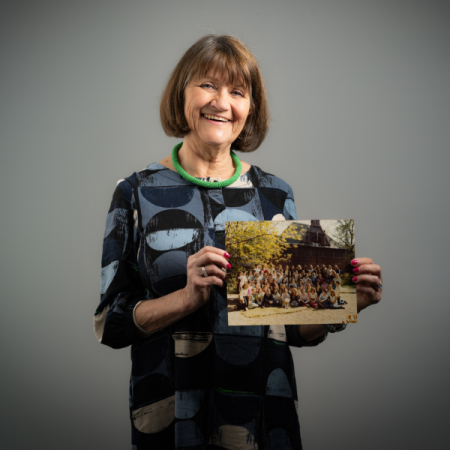
Sue was in her mid-20s when she decided to train as an occupational therapist – a career that has spanned more than 40 years and enticed her to return to practice, twice.
Sue enthused: “It’s the best career I could ever have chosen. I’ve enjoyed autonomy, I’ve travelled across the county, and most importantly, I’ve been privileged to help so many people find solutions to their problems so they can live their best life.”
As an occupational therapist for Kent County Council’s social services, Sue’s role involved assessing all aspects of a person’s function and their home, with the solutions ranging from fitting a simple grab rail to hoists or designing and overseeing an extension to the property for wheelchair access.
She explains: “As an OT for social services, it’s about working in partnership with healthcare providers, the Home Improvement Agency, district councils and builders, and most importantly, the people living with disabilities. It has meant interpreting architectural drawings, meeting construction crews and even wearing a hard hat on site! But the satisfaction is always the same, finding solutions to improve people’s lives.”
During her career, Sue has taken two career breaks. The first when her children were young and the second for retirement.
Returning to practice the first time, in the late-80s, Sue answered a small newspaper advert looking for OTs to work a few hours a week – it was the stepping stone she needed to get her career back on track.
Don't be scared to return to practice
Sue held a variety of practice and management roles and more than 25 years later, she retired from KCC as assistant director older people and people with disabilities transformation but was enticed out of retirement after just six weeks.
Since then, Sue has been the assessor for the portfolios of work produced by OTs for career progression. She has also worked as a consultant on several projects including OT integration between KCC and the NHS, and developing competency frameworks for qualified and unqualified staff, using her vast knowledge of occupational therapy, industry standards, operating frameworks and best practice.
Sue said: “If you’re considering returning to practice, don’t be scared. Your professional skills do not go away just because you’ve had a break in service. Plus, you will have gained life skills, and these are transferrable skills which shouldn’t be underestimated.”